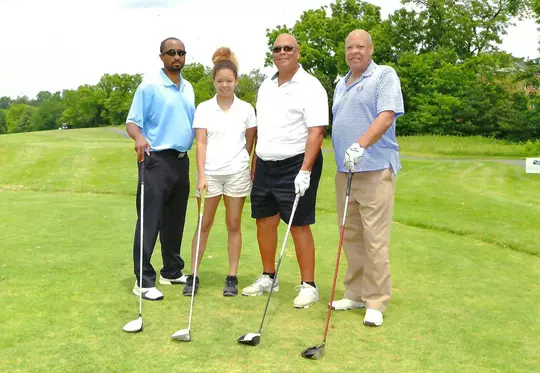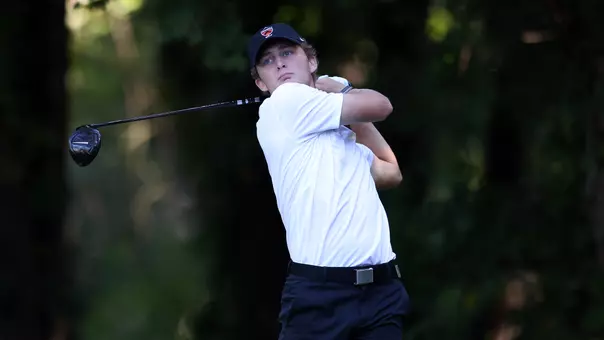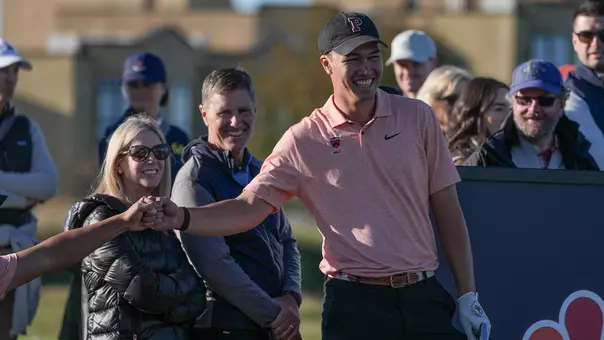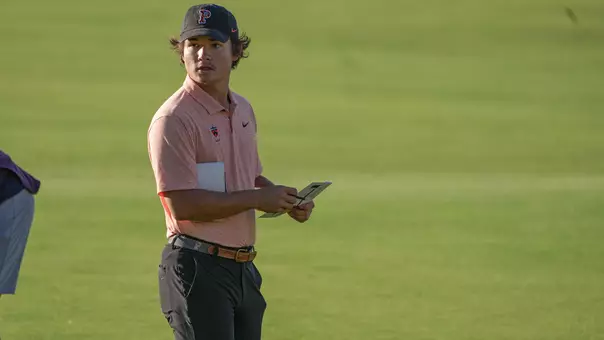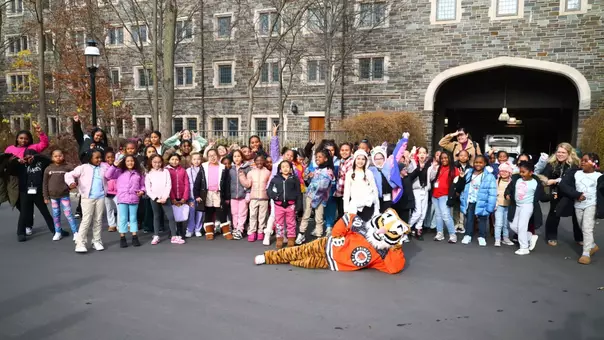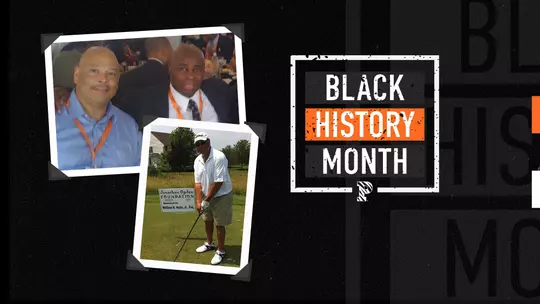
Rick Hyde '75 - Barrier-Breaking Golfer
2/22/2021
Rick Hyde ’75 will always be remembered as the first Black varsity golfer in the Ivy League. A true trailblazer. It is also important to know that post-Princeton, Hyde has lived a life of service to others, especially the less well-off in society.
He is the Principal Attorney at William R. Hyde, Jr., Esq & Associates and a Professor of Sports Law at Howard University. Both endeavors have allowed him to shape the lives of many professional athletes, musicians, filmmakers, actors and actresses and to uplift the communities around them. Hyde is all about encouraging others to use their platforms for the greater good.
My job is to protect and advance the careers of young people who become fabulously wealthy and enable them to become men and women of distinction impacting the world.Rick Hyde

“I always had this vision of trying to get everybody together,” said Hyde. "If all the professional athletes and celebrities of like mind got together and pooled their philanthropic resources, collectively, what good could we do in the world today?”
One of the most successful examples of Hyde’s vision has been Superbowl Champion and 11-time Pro Bowl selection Jonathan Ogden.
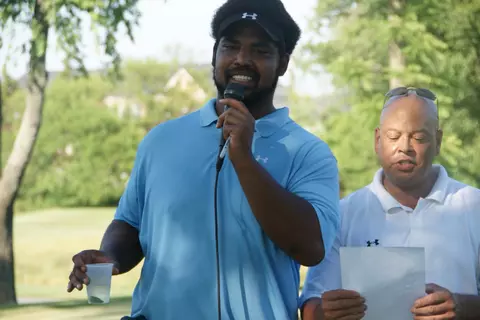

Hyde has worked as Mr. Ogden’s attorney throughout his career and the duo have made a tremendous impact in Baltimore.
“Jonathan undertook to dive into the crisis of the school system in Baltimore,” said Hyde. “The problems that the kids have involved more than even coming to school and having any chance at life. We formed the Jonathan Ogden Foundation in 1997, which I am the trustee of, and we have probably matriculated 600 kids into college through the system in Baltimore, which is very, very difficult. That is probably the thing I am most proud of.”
Ogden is not the only former Raven to work with Hyde. He has also worked with Michael Oher, of The Blindside fame.
“Michael's devotion in life is to focus on kids who are stuck in the system as foster children,” proclaimed Hyde. “He enlightened me because I hadn't realized that when every kid that's in the foster care system in the United States reaches 18 years old, they're kicked out. They're on the street and they're on their own. What do we do to aid the transition? It's a massive problem. It's something that Michael has undertaken and undertaken nobly.”
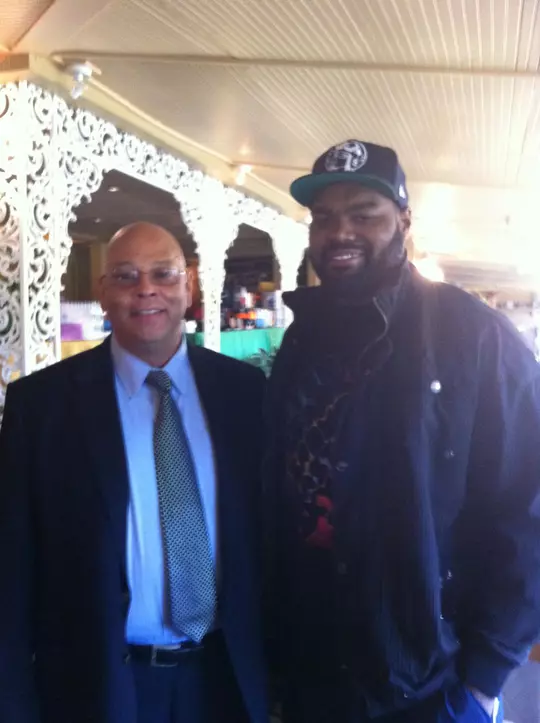
Hyde has also worked with several other athletes and celebrities over the years, including Stevie Wonder, and helped them utilize their platforms for the greater good. Hyde was recruited in 1980 to assist Mr. Wonder in the first march on Washington, D.C. to make Martin Luther King’s birthday a national holiday. Hyde worked on each successive march, which included the release of “Happy Birthday”, through the successful signing of the legislation, and has been close friend and personal attorney for Mr. Wonder since.
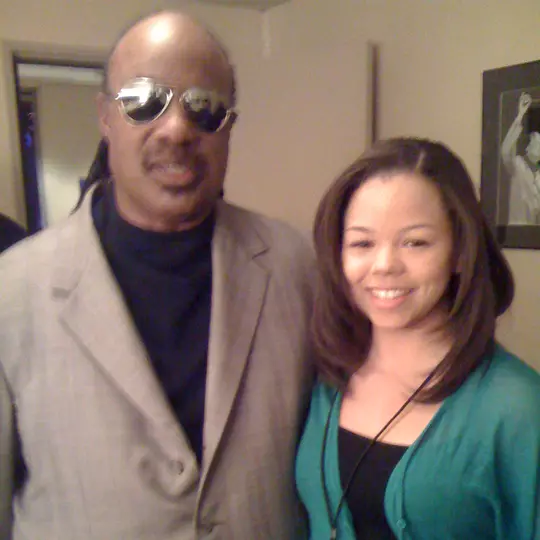
Prior to starting his own law firm, Hyde accumulated years of experience in the profession. He chose to study at Howard University Law school because of its civil rights background.
“I was Editor in Chief of the Law Review and number two in my class,” proclaimed Hyde. “I did very well and after graduation in 1978 worked as Law Clerk to Chief Judge William B. Bryant, the Chief Judge of the Federal District Court for the District of Columbia, which was another absolutely wonderful experience.”
Hyde would then work as an associate attorney for Gibson, Dunn and Crutcher, one of the top law firms in Los Angeles, before forming his own boutique entertainment law firm in Washington, D.C. in 1983 eventually with associate offices in Los Angeles and New York.
Way back before Hyde was impacting the lives of so many through his work as a sports and entertainment lawyer, he was one-of-two Black graduates in the Class of 1971 at the prestigious, all-male Episcopal St. Albans School in Washington, D.C. The school did not have a golf team, but Hyde showed his athletic prowess by lettering in varsity football, basketball and baseball.
Opportunities for Hyde to play golf were limited growing up, so naturally he gravitated to those other sports. Pre-1968, the Washington D.C. golf community was largely segregated as there were only two golf courses, Langston and East Potomac Park, where Black golfers were allowed to play. There were also no private country clubs where Black golfers were welcome to play until Indian Spring Country Club, a predominantly Jewish club, admitted Hyde’s father and four other Black families.
Hyde got his start in the sport of golf at age nine, caddying for his father who had returned to D.C. following the Korean War, where he served as a MASH surgeon and commander of his front line surgical unit.
After taking up the sport, Hyde’s dad and his colleagues would play on Wednesdays and weekends.
Enamored with the camaraderie and trash-talking he witnessed from his father and his golfing buddies, Hyde took up the sport himself and was a natural. He had the opportunity to play with Lee Elder and the Dent brothers, Black PGA Tour players who were restricted from playing any other courses due to their race. Being around such elite golfers had its benefits, as Hyde learned the use of a two iron from Mr. Elder after watching him perfectly shape the trajectory, whether it be fades or draws, shot after shot.
Growing up, Hyde spent several summers in Cape Cod. He alternated work as a beach lifeguard and in the cart room at Clauson’s Country Club in Falmouth. There he would make two friends for life, George Clauson, a long-time pro at his family-owned country club and Mike Wedge, who went on to play at Rollins College and had a brief PGA career. Hyde and Wedge would travel together to play in the Rhode Island Open and the Maine Open.
Despite not playing on a high school team, Hyde would compete in the 1970 D.C. Metropolitan Golf Tournament. The only Black competitor, he shot a 68 which was the low qualifying round and made headlines.
Historically, there had been few people who looked like Hyde at Princeton. His time as a Tiger proved to be transformative in many ways. As a freshman he played basketball, along with golf, but it was golf he stuck with long-term. He also was a “DJ” on WPRB hosting a popular radio program “Triad” featuring Jazz and contemporary artists of color.
I think President Robert Goheen was a great leader undertaking a great initiative to bring more minority students and diversity onto campus. It was a wonderful thing enhancing the educational fabric of the entire University. But it was not without its challenges.Rick Hyde
On his very first day at Princeton, Hyde remembers walking into his Holder Hall dorm room with his mother and his aunt and seeing a giant confederate flag draped over his roommate’s door. While the flag was immediately taken down, Hyde and his then-roommate barely spoke. He remembers that no Black students were allowed or welcomed in any eating clubs during his time at Princeton, 1971-1975, and the negative impact the exclusion from Princeton’s most significant social experience has had on so many Black students over the years. Hyde also notes that these experiences were not unique to Princeton, but were a microcosm of problems facing society as a whole.
The men’s golf team proved to be a place where Hyde always felt welcome and Princeton golf is still an important part of Hyde’s life today.
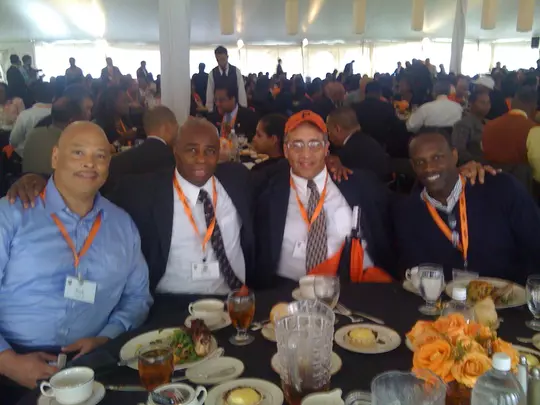
Each year he looks forward to the opportunity play and intermingle with the current group of men and women Princeton golfers at the annual Reunions Tournament. He is still close with his teammates from all those years ago and was asked to speak with the men’s team over the summer following the death of George Floyd.
“I know Will (Head Coach Will Green) was seeking to probably take advantage of my insight because a lot of the students are having difficulty processing what they were seeing,” said Hyde. “What do we do, particularly in a community like golf where there’s not much Black participation, to show leadership when this is happening to Black people?"
Hyde is appreciative of the fact that Princeton Golf has historically taken the lead on race relations, whether it be great men like Coach Bill Quackenbush taking a chance inviting him on the team all those years ago or Coach Green today. He has wondered if it is because golf is the only sport where participants call penalties on themselves, if the sport is uniquely positioned because of its moral compass to take the lead in addressing these difficult issues and times.
While his life has been dedicated to service, Hyde is also aware of the opportunity Black History Month presents to highlight the tremendous contributions of Black people who have historically been overlooked.
Black History Month is an opportunity to celebrate circumstances and people who deserve celebration, but have not received it for so, so, so many years. It's an opportunity to look at cultural achievement that has been ignored and minimized for so many years.Rick Hyde
Hyde also sees Black History Month as a platform to educate people on issues facing black people, both historically and today. He has found that often the youth he speaks to aren’t always aware of everything that has happened in the past.
The education process is everything for Hyde, as he stresses the importance of society knowing our history and seeking truthful accounts. He sees this as key to advancing as a society.
I'd like to be known as somebody who is hoping that we all look at the truth. Embrace the truth. If we can't accept and face, what is the truth to begin with, then that's probably our number one obstacle in society right now. I'm hoping that we move people towards that reconciliation point. I have wondered what my Holder Hall roommate would have thought about that confederate flag had he known that my great-grandmother was born a slave in Isle-of-Wright County, Virginia."Rick Hyde
